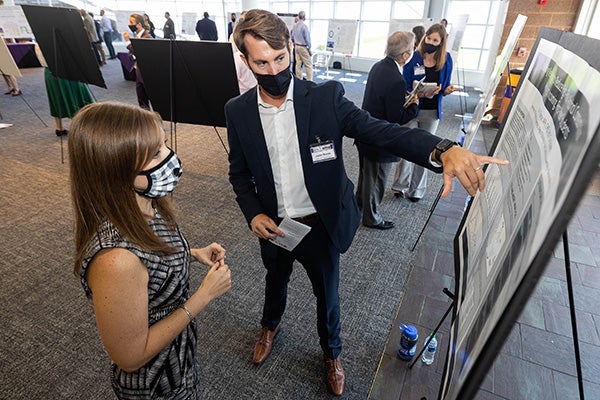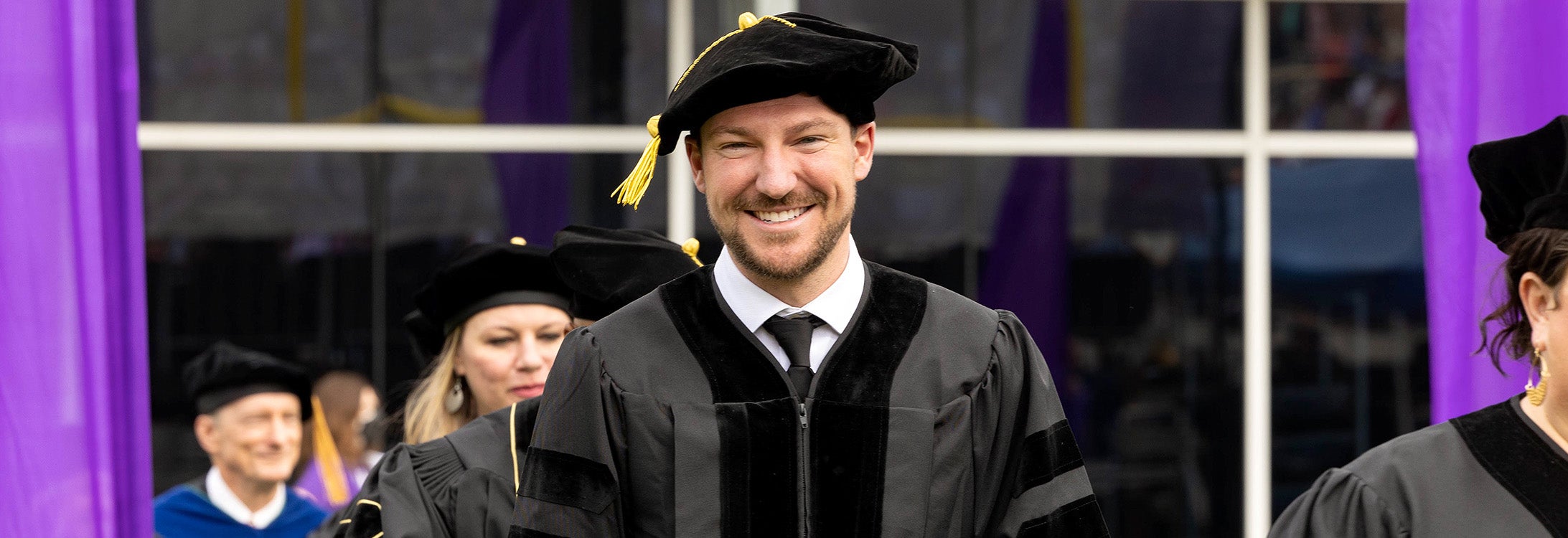DISSERTATIONS IN PRACTICE
ECU doctoral students work for the underserved
During the height of the COVID-19 pandemic Matthew Cheeseman, superintendent of Beaufort County Schools, read scholarly journals and synthesized the key points for his dissertation. The other six-and-a-half days a week, he worked to help his school district navigate the turmoil of delivering education during the pandemic.
Cheeseman graduated with his doctorate in educational leadership from East Carolina University in Spring 2022 while continuing to lead his school district full time.
“As a superintendent, trying to lead a school system, but also attend class and do homework assignments …When they put that hood on … it was just incredible,” Cheeseman said. “I just didn’t have any words in the moment.”
ECU’s Doctor of Educational Leadership is an Ed.D., which is different from the traditional Doctor of Philosophy or the Ph.D.
Travis Lewis, coordinator of ECU’s Ed.D. program, said the programs have different goals. He said those who earn their Ph.D.s typically produce or add to theory and become professors. Those earning their Ed.D. can teach and are trained to become administrators, taking on leadership roles within their institutions. But maybe more importantly, their dissertations — or overview and implementation of their study — are active.
“The Ed.D. program focuses on getting your hands dirty by conducting research and putting it into actual practice,” Lewis said.
Cheeseman’s dissertation focused on school improvement teams by advancing the knowledge of adults through professional learning cycles. In other words, all the teachers in the school have a similar teaching style. Cheeseman said it has led to better student outcomes.
“It’s nice to see it (research) not just end at graduation, but really be picked up and moved along and carried from one to the next. I’m excited about it,” Dr. Cheeseman said.

Justin Sharpe, an Educational Leadership doctoral student discusses his study with Assistant Professor Dr. Heidi Puckett.
Students in ECU’s Ed.D. program can be in either higher education or K-12. The three-year program is designed for the working professional. It is based on the Carnegie Project on the Educational Doctorate. The students will begin writing their dissertation their first semester, which is also different from the Ph.D. The students’ dissertation studies are driven by challenges associated with a lack of equity or social justice.
“Systems of education have lots of problems and they’re very complex, they’re systemic and they’re rooted in issues of equity and social justice,” said Dr. Marjorie Campo Ringler, chair of ECU’s Department of Educational Leadership.
Tiffany Hinton is the assistant vice chancellor for diversity and inclusion and chief diversity officer at Elizabeth City State University. Her dissertation was on the social experiences of LGBTQ students at ECSU. She now uses the results of that study to better serve the students of ECSU.
“It was all of these little things we did to kind of show students — you matter, we see you … we want you to feel included,” Hinton said.
Earning a doctorate while working full time can be a challenge. However, the results of the dissertation take on an importance to those it looks to help.
“We tell kids all of the time it’s not supposed to be easy,” said 2024 graduate Dr. Randy St. Clair, principal of both Wilson Early College Academy and the Wilson Academy of Virtual Education. “It is supposed to be a labor that produces something in you that you didn’t know was there.”
Cheeseman hopes his story of overcoming the challenges of life and work while going to school will motivate others to do the same.
“I turned 50 years old when I got my Ed.D., so it’s never too late. … (This shows) people that they do have it in them,” Cheeseman said.
Applications are now being accepted for the next Ed.D. cohort.
